PhD Program
Shaping the future of business scholarship.
In an international economy driven by accelerating change, the business world needs cutting-edge scholarship that probes the complexity of the marketplace and gives practitioners, policymakers and thinkers evidence-based tools and strategies to transform our models for managing, leading, innovating and succeeding.

PhD Programs for Aspiring Thought Leaders
The Robert H. Smith School of Business PhD program is designed for individuals who wish to become thought leaders and business faculty at elite research institutions worldwide. Students benefit from a diverse, world-class experience, and collaborate with faculty on relevant, groundbreaking research long after graduation. Our faculty supports PhD students with extensive mentorship and collaboration, including pursuing the publication of papers in top business journals. Doctoral alumni also generously contribute to our research enterprise as they often co-author publications, present at our speaker series and show their support at major conferences. If you aspire to this kind of collective contribution to the discovery and dissemination of business knowledge, Smith is a wonderful place to further your career in academia.
Application Process Apply
Credits 54 Credits
Program Duration 5 Years
Application Window Aug.–Dec. 19
Prerequisites GMAT/GRE
Areas of Specialization
The Smith PhD Program is known for the highest quality research, led by our internationally acclaimed faculty. The program is intellectually stimulating, uniquely collaborative, and research-intensive. The Smith PhD Program offers nine areas of specialization across six academic departments. To learn more about the research and how our expertise can align with your research interests, explore the areas of specializations we offer:
- Accounting & Information Assurance
- Information Systems
- Managerial Economics
- Operations Management/Management Science
- Organizational Behavior/Human Resource Management
- Strategic Management & Entrepreneurship
- Supply Chain Management
Program Benefits
Every student admitted to the PhD program typically receives full financial support in the form of a graduate assistantship or fellowship for all five years, pending satisfactory progress. Each student also receives a $2,000 research stipend per year that may be used for research-related expenses such as conference attendance. The research stipend depends on satisfactory progress in the program.
Each student is provided with a carrel and computer in the PhD program suite, funded by alumnus William A. Longbrake, PhD '76. In the suite, students have access to team conference areas and study rooms to encourage collaboration and community.
Faculty-Colleague Relationship
A close working relationship between faculty and PhD students is a hallmark of the program.
Recognizable Research
Students regularly present papers at national as well as regional conferences and have papers accented in major academic journals.
Fellowships and Gifts
The Smith PhD Program draws its support from many generous gifts given by distinguished alums and scholars alike. These transformative gifts allow our PhD candidates to receive the well-rounded, involved education that makes Smith PhDs so sought-after in both industry and academia.
Long Jiang Endowed Graduate Fellowship in Business
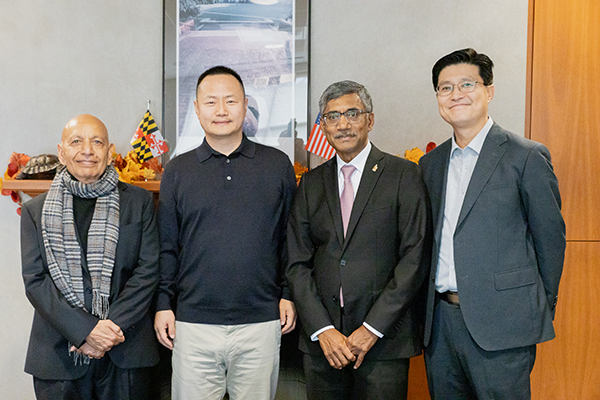
As an accomplished business leader in both the U.S. and China, Jiang founded and served in various roles with Goertek, Inc., which develops and manufactures audio equipment, smart devices using virtual and augmented reality, wireless equipment and optical components for notable clients such as Apple, Samsung, Sony, Lenovo, and Meta.
Ritu Agarwal Distinguished PhD Fellowship

Agarwal brought significant contributions to the Smith School, and specifically the PhD Program, in her various roles: distinguished teacher-scholar, distinguished university professor, founding director of the Center for Health Information and Decision Systems (CHIDS), senior associate dean of faculty and research, and interim dean. She currently serves as the Wm. Polk Carey Distinguished Professor in Information Systems and Health at the Johns Hopkins Carey Business School, and co-founder of the Center for Digital Health and Artificial Intelligence.
Michael Ball Endowed PhD Fellowship

Ball began his academic career as an assistant professor in 1984 and served in various administrative roles at the Smith School, including senior associate dean and associate dean for research. Additionally, Ball held joint appointments with the Institute for Systems Research at the University of Maryland, College Park. External to UMD, Ball was co-founder of Distinct Management Consultants and its subsidiary Routesmart Technologies.
Other Financial Awards
- Gerald and Deana Stempler Award for Leadership and Management
- Story Phillips Scholarships
- Abraham Golub Dissertation Proposal Memorial Award
- H. Kent Baker Graduate Fund
- Nancy S. and Edward F. Ebert Graduate Award in Free Enterprise
Latest News
Contact the PhD Program Office
The Robert H. Smith School of Business University of Maryland 3330 Van Munching Hall College Park, MD 20742-1815
For GPS, please use the following address: 7621 Mowatt Lane, College Park, MD 20742
Phone: 301-405-2214 Email: [email protected]
Hours of operation: 8:30 a.m. to 5 p.m. (Monday-Friday)
- Postgraduate
- PhD and Professional Doctorates
- PhD opportunities

MOre Sustainable MOre Profitable (MOSMOP) Business Model Innovation
- School: Nottingham Business School
- Study mode(s): Full-time / Part-time
- Starting: 2024 / 2025
- Funding: UK student / International student (non-EU) / Self-funded
Staff profiles
Entry qualifications, how to apply, fees and funding, guidance and support.
Rationale and Background:
In the rapidly evolving global business landscape, the adoption and integration of Environment, Social, and Governance (ESG) principles and standards present both a formidable challenge and a transformative opportunity for businesses across sectors. Traditionally, ESG criteria—ranging from carbon emission reduction and net-zero initiatives to waste management, employment diversity, inclusion, and fair labour policies—have been relegated to the realm of compliance. This compliance-centric view has led many firms to perceive ESG initiatives as cost-bearing rather than profit-generating ventures, thereby diminishing the incentive to enhance ESG performance proactively.
However, a paradigm shift is underway, with evidence mounting in support of ESG as a potent profit-making force. For instance, in the UK, an increasing number of energy consumers are showing a preference for sustainable energy solutions, signalling a broader change in consumer behaviour and value perception towards sustainability. This emerging trend underscores the need for business leaders to rethink and reorient their strategies towards developing more sustainable offerings that not only adhere to ESG standards but also drive higher margins and better returns.
Against this backdrop, the proposed PhD project seeks to chart a new course for ESG-driven business model innovation. It aims to dismantle the traditional view of ESG as a mere compliance issue and reposition it as a cornerstone of strategic business model design that harmonizes profitability with sustainability.
Possible Research Objectives:
The project is structured around three primary objectives:
*Understand Consumer and Stakeholder ESG Perceptions: To dissect and comprehend the evolving perceptions and behaviors of consumers and broader stakeholders towards ESG, thereby identifying new needs and opportunities for sustainable business practices.
*Collaborate with Future ESG Leaders: To forge partnerships with emerging ESG leaders and practitioners, facilitating the exchange of knowledge and best practices in embedding ESG considerations into business models. This collaborative effort will serve as a crucible for reimagining and realigning business models with stakeholder expectations, creating distinctive and sustainable products and services.
*Empower ESG Entrepreneurship: To nurture and empower a new generation of ESG entrepreneurs who can lead the charge in integrating ESG principles into business model innovation. These future leaders are envisioned to play a pivotal role in transforming ESG norms across the business community, leveraging social business networking as a platform for change.
Significance:
This research project is poised at the intersection of academic inquiry and practical business innovation. By developing sustainable and profitable ESG-driven business models, the project addresses a critical gap in current business practices and contributes to the global dialogue on sustainability. The outcomes of this research have the potential to redefine how businesses approach ESG, shifting from compliance to competitive advantage and from cost to profitability.
The project's focus on collaboration with future ESG leaders and the emphasis on social business networking introduces a novel approach to disseminating and embedding sustainable practices within the business community. This strategy promises to catalyze a broader transformation in business norms, making ESG a central tenet of business model innovation.
Possible Methodology:
The project will employ a mixed-methods approach, incorporating both qualitative and quantitative research techniques. Initial phases will involve detailed market analysis and stakeholder interviews to capture ESG perceptions and needs. Subsequent stages will focus on collaborative workshops and case study analyses with future ESG leaders, aimed at co-designing and testing innovative business models.
Potential Impact:
The anticipated impact of this research is multifaceted:
*The development of a framework for ESG-driven business model innovation, providing a blueprint for businesses seeking to align profitability with sustainability. *Strategic insights into optimizing business models for ESG performance, contributing to the broader academic discourse on sustainable business practices. *Practical guidelines for future ESG leaders, equipping them with the tools and knowledge to drive change within their organizations and industries. *Recommendations for policy and regulatory frameworks that support the adoption of ESG principles in business strategy.
Possible Outcomes:
This PhD project represents a timely and critical investigation into the role of ESG in shaping the future of business. By exploring the nexus of ESG standards, consumer behaviour, and business model innovation, the project seeks to unlock new pathways to sustainability and profitability. The research outcomes will not only advance academic understanding but also offer actionable insights for business leaders, policymakers, and future ESG entrepreneurs, paving the way for a more sustainable and equitable global economy.
- Have some working experience in the relevant industry.
- Have a backup business or have access to business data for the PhD study.
- Ideal candidates should possess analytical prowess, a strong foundation in economic and business theory, and a keen interest in emerging business trends.
- Background in either of the following relevant subject areas: Information Science / Tech Management; Entrepreneurship / Innovation / Strategy
Experience in qualitative and quantitative research methodologies is highly desirable.
Applications for October 2024 intake closes on 1 st August 2024 and applications for Jan 2025 intake closes on 1 st October 2024. Please visit our how to apply page for a step-by-step guide and make an application.
This is a self-funded PhD project for UK and International applicants.
For more information about the NBS PhD Programme, including entry requirements and application process, please visit: https://www.ntu.ac.uk/course/nottingham-business-school/res/this-year/research-degrees-in-business
Nottingham Business School is triple crown accredited with EQUIS, AACSB and AMBA – the highest international benchmarks for business education. It has also been ranked by the Financial Times for its Executive Education programmes in 2023 and 2024. NBS is one of only 47 global business schools recognised as a PRME Champion, and held up as an exemplar by the United Nations of Principles of Responsible Management Education (PRME).
Its purpose is to provide research and education that combines academic excellence with positive impact on people, business and society. As a world leader in experiential learning and personalisation, joining NBS as a researcher is an opportunity to achieve your potential.
Still need help?
- Harvard Business School →
- Doctoral Programs →
- PhD Programs
- Accounting & Management
- Business Economics
- Health Policy (Management)
- Organizational Behavior
- Technology & Operations Management
- Program Requirements
Students in the program are expected to master graduate-level microeconomic theory and econometrics. In addition, they are expected to devote substantial time to mastering one additional complementary discipline, such as psychology, sociology, or political science, and developing expertise in research methodologies suited to their particular interests, such as qualitative analysis, designing effective fieldwork, and analysis of survey data.
Students in the Strategy doctoral program work closely with faculty in the Strategy Unit. In addition to the doctoral program in Strategy, the Strategy unit offers a program in Business Economics , which is designed to attract students interested in pursuing research using a purely economics-based methodology.
Curriculum & Coursework
Our programs are full-time degree programs which officially begin in August. Students are expected to complete their program in five years. Typically, the first two years are spent on coursework, at the end of which students take a field exam, and then another three years on dissertation research and writing.
The program requires a minimum of 13 semester long doctoral courses. Students in the Strategy program complete courses in the areas of business management theory, economic theory, quantitative research methods, academic field seminars, and two MBA elective curriculum courses. In addition to HBS courses, students may take courses at other Harvard Schools and MIT.
Research & Dissertation
Students in strategy begin research in their first year typically by working with a faculty member. By their third and fourth years, most students are launched on a solid research and publication stream. The dissertation may take the form of three publishable papers or one longer dissertation.
Examples of thesis research include: the relationship between non-market experience and the use and outcome of patent strategies by pharmaceutical firms; the antecedents and consequences of corporate strategy decision-making, specifically focusing on divestitures and governance; the impact of religion on individual financial choices and institutional structures; innovation in emerging markets; and the causal effect of incentive policy reform, expatriates and social relationships on innovation.

Dafna Bearson
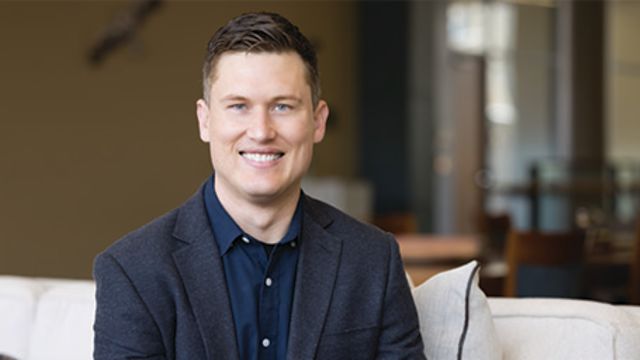
Rowan Clarke
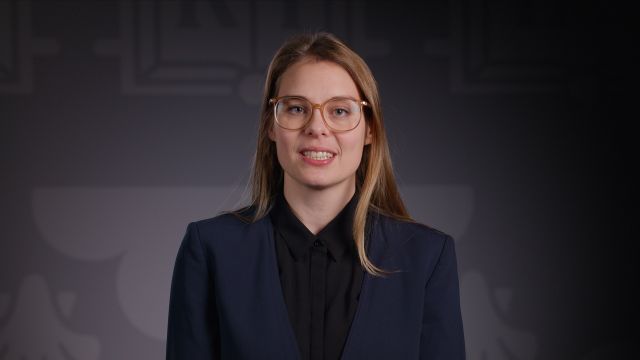
Professor Maria Roche
“ Students in the program come from diverse backgrounds ranging from computer science to psychology. It's really fascinating how different our worlds views are! ”

Recent Placement
Innessa colaiacovo, 2024, f. christopher eaglin, 2022, j. yo-jud cheng, 2019, laura katsnelson, 2024, young hou, 2021, do yoon kim, 2019, nataliya langburd wright, 2023, hyunjin kim, 2020, current strategy students.
- Jackson Anderson
- Ana Antolin
- Dafna Bearson
- Liz Calder
- Rowan Clarke
- Leila Doumi
- Aticus Peterson
- Katie Piner
- Joey Ryu
- Kyle Schirmann
- Yifei Wu
- Haiyang Zhang
Current HBS Faculty
- Juan Alcacer
- Laura Alfaro
- Bharat N. Anand
- Brian K. Baik
- Julie Battilana
- Ethan S. Bernstein
- Jeffrey J. Bussgang
- Ramon Casadesus-Masanell
- Alberto F. Cavallo
- Prithwiraj Choudhury
- David J. Collis
- Leemore S. Dafny
- Mattias E. Fibiger
- Carolyn J. Fu
- Stuart C. Gilson
- Shane M. Greenstein
- Boris Groysberg
- Jonas Heese
- Rebecca M. Henderson
- Ebehi Iyoha
- Archie L. Jones
- William R. Kerr
- Tarun Khanna
- Hyunjin Kim
- Raymond P. Kluender
- Nancy F. Koehn
- Scott Duke Kominers
- Rembrand M. Koning
- Karim R. Lakhani
- Himabindu Lakkaraju
- Josh Lerner
- Michael Lingzhi Li
- Deepak Malhotra
- Edward McFowland III
- Cynthia A. Montgomery
- John C. Mulliken
- Kyle R. Myers
- Frank Nagle
- Felix Oberholzer-Gee
- Joseph Pacelli
- Lynn S. Paine
- Elisabeth C. Paulson
- Sophus A. Reinert
- Meg Rithmire
- Jan W. Rivkin
- Charlotte L. Robertson
- Maria P. Roche
- Clayton S. Rose
- Raffaella Sadun
- William A. Sahlman
- George Serafeim
- Willy C. Shih
- Christopher T. Stanton
- Jorge Tamayo
- Sara McKinley Torti
- Isamar Troncoso
- Eric J. Van den Steen
- Jeremy Yang
- Dennis A. Yao
- David B. Yoffie
- Shunyuan Zhang
Current HBS Faculty & Students by Interest

PhD in Management Program
A phd in management: where business research and education intersect.
Become an industry thought leader while preparing tomorrow’s business leaders.
Our fully funded PhD in Management is designed for ambitious students and professionals interested in a career in university teaching and research.
This residential program, based at the Samuel Curtis Johnson Graduate School of Management in Ithaca, NY, combines Ivy League rigor and real-world relevance to prepare you for successful careers in academia.
At a Glance: Cornell’s Fully Funded PhD in Management
The fully residential, fully funded PhD in Management program includes a tuition waiver and a stipend for living expenses. Here’s a quick overview of what to expect:

Degree Awarded
PhD in Management

Program Location
Ithaca, NY, with options in New York City

Program Format
Foundational coursework, original research, and six potential areas of study

Why Get a PhD in Management?
With a strong focus on management science and applied research, this doctoral degree is ideal for someone looking to teach at the university level and contribute to the greater body of industry knowledge. Pursuing a PhD in Management is also an ideal next step for executives and senior managers who want to make a transition to academia or enhance their research skills for a successful consulting career.
Fully Funded, Highly Flexible: What Makes Cornell’s Management PhD Different?
As you explore PhD programs’ degree requirements, faculty engagement, and campus experience, Cornell stands alone.
In Cornell’s highly flexible program, you’ll choose a specific area of study and build your own dissertation committee. Our program faculty are genuinely interested and invested in your intellectual development. In this small and highly selective program, you will get to know the faculty and your peers well.
The SC Johnson Graduate School of Management is home to leading research centers and a high-impact academic journal; these open you up to unique learning and mentorship opportunities.
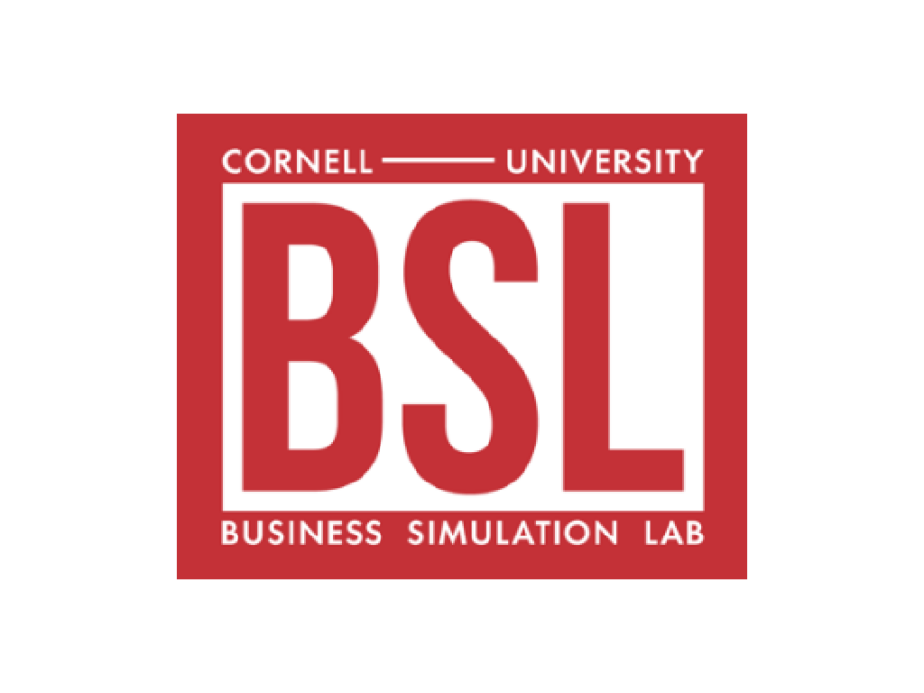
Business Simulation Lab
The Debra Paget and Jeffrey Berg Business Simulation Lab facilitates in-person and online behavioral research related to decision-making and problem-solving.
Discover More About BSL
Our Three-Pronged Approach to a PhD in Management
The Johnson School’s doctoral degree in management combines the best of theory and practice, building on a three-pronged foundation:

Hands-on Experience
Develop your research and analytical skills. You’ll work with classmates to examine existing literature and theories for class deliverables, which will often include your own original research.

Customizable Curriculum
Design your own academic pathway. You’ll choose one of six primary areas of study and create your own dissertation committee.

University-Wide Coursework
Draw on the expertise from across Cornell. You’ll get to select graduate-level courses from schools and colleges devoted to law , hospitality , engineering , labor relations , and other fields.

Hear from Our Community
“PhD is a marathon, not a sprint, and collaborating with great people is paramount. At Cornell, I’ve found a place where amazing people come together, supporting my research and personal growth. Choosing Cornell means joining a community that knows how important it is to work with exceptional people to excel in the program.” – Elina Hur PhD ’23
Customize Your Path: Our Areas of Study
When you apply to the Johnson School’s PhD in Management, you will select a primary area of study. Choosing a concentration allows you to gain specialized skills and knowledge while growing a portfolio of original research.

Examine the role of accounting information in firms and financial markets. PhD-level research at Cornell explores topics such as how firms report information to investors, how accounting information is used to manage firms, and the nature of auditing.

Strategy & Business Economics
Use modern tools and methodologies to gain a better understanding of the world. PhD students in this area explore many aspects of economics including industrial, behavioral, labor, and organizational.
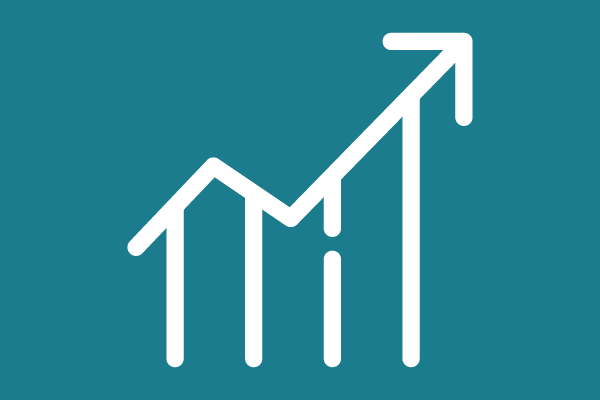
Dive deep into the financial structure and issues of organizations. Your research might look at how conflicts of interest affect corporate policy, how investor psychology affects asset pricing, or how to detect price bubbles.

Learn how theories from operations research, economics, psychology, and sociology intersect to inform corporate and consumer decisions. Your PhD studies will explore both quantitative and behavioral perspectives of marketing.

Management & Organizations
Prepare for a research-focused career in academia or industry. This versatile concentration develops skilled, innovative, analytical researchers through a broad curriculum and close faculty collaboration.

Operations, Technology, & Information Management
Develop the technical skills and behavioral analysis knowledge you need to address high-impact managerial decisions. This focus area also offers an option to complete coursework at Cornell Tech in New York City.

Idea Generation to Publication: A Career in Teaching and Research
The majority of our PhD in Management students pursue careers in academia. After graduation, many land tenure-track teaching positions at top-tier business schools and continue to advance knowledge through original research. Johnson School PhD students often field multiple offers and see starting salaries range from $150,000 to $250,000.
Finding Your Place at Cornell: Meet Our Current PhDs
Students from around the United States and across the globe arrive at the Johnson School to earn their PhD in Management—and their diverse research interests, educational backgrounds, and professional experiences make for a vibrant, enriching learning environment.
MEET CURRENT PHD STUDENTS

Research and Placements: Making an Impact in the Management Field
After earning the PhD in Management, our alumni go on to teach and inspire future leaders at top-tier institutions. Not only do they teach and conduct research alongside some of the most brilliant minds in business, but they also advance the field through publishing in leading journals and presenting their work at industry conferences.
Recent PhD in Management Placements
- Piyush Anand, PhD ’21, assistant professor of marketing, Jones Graduate School of Business, Rice University
- Guarav Kankanhalli, PhD ’20, assistant professor, Joseph M. Katz Graduate School of Business, University of Pittsburgh
- Eunjee Kim, PhD ’21, assistant professor, Mays Business School, Texas A&M University
- Sarah Lim, PhD ’21, assistant professor, Gies College of Business, University of Illinois Urbana-Champaign
- Xuege Lu, PhD ’22, assistant professor, Carlson School of Management, University of Minnesota
- Subrina Shen, PhD ’21, assistant professor, McCombs School of Business, University of Texas at Austin
Recent Research Publications
- “ Do Real Estate Values Boost Corporate Borrowing? Evidence from Contract-Level Data ” in the Journal of Financial Economics (2022) — Gaurav Kankanhalli, PhD ’20, with Murillo Campello, Robert A. Connolly, and Eva Steiner
- “ Converging Tides Lift All Boats: Consensus in Evaluation Criteria Boosts Investments in Firms in Nascent Technology Sectors ” in Organization Science (2021) — Xirong (Subrina) Shen, PhD ’21, with Huisi (Jessica) Li, PhD ’20, and Pamela S. Tolbert
- “ Initial and Longer-Term Change in Unit-Level Turnover Following Leader Succession: Contingent Effects of Outgoing and Incoming Leader Characteristics ” in Organization Science (2020)— Huisi (Jessica) Li, PhD ’20, with John Hausknecht and Lisa Dragoni
“ Does Regulatory Jurisdiction Affect the Quality of Investment-Adviser Regulation? ” in American Economic Review (2019) — Alan Kwan, PhD ’17, with Ben Charoenwong and Tarik Umar
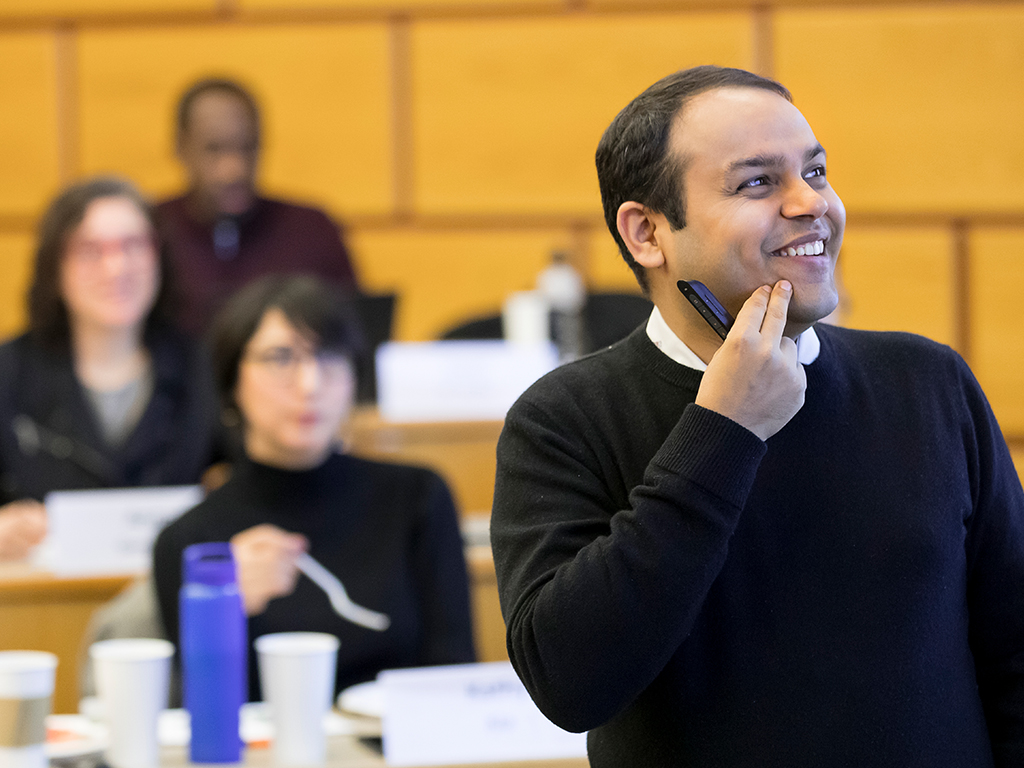
Our Faculty: Accomplished Researchers, Dedicated Teachers
When you join the PhD in Management program at the Johnson School, you’ll be part of a learning community comprising more than 100 accomplished academics and thought leaders.
Not only will you take courses with renowned professors from across the Cornell SC Johnson College of Business, but you also will have the opportunity to build your own faculty committee—a group that will become instrumental as you select your dissertation topic and embark on your original research.
Faculty Spotlight: Learn from Leading Thought Leaders
Throughout the PhD program—from foundational coursework to your dissertation—you’ll work closely with dedicated teacher-scholars like these:
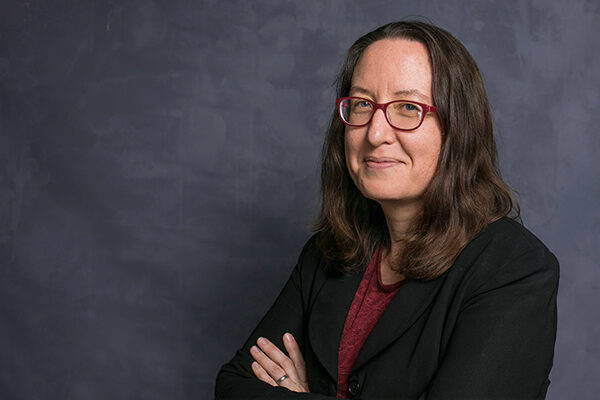
Kristina Rennekamp
Dr. Rennekamp’s research focuses on financial accounting from a behavioral perspective. She’s widely published, with work appearing in leading academic journals such as The Accounting Review , Contemporary Accounting Research , and The Journal of Financial Reporting .

Karan Girotra
Dr. Girotra studies the digital transformation of companies, whether it’s looking at emerging tools and practices or exploring new business models. He’s frequently interviewed in an array of mainstream business media outlets, including Bloomberg BusinessWeek , Fortune , and Forbes .

Kaitlin Woolley
Dr. Woolley studies the psychological processes behind consumer motivation. She’s an award-winning educator and researcher with work published in academic journals and national media outlets including the Journal of Consumer Research , Journal of Marketing Research , and The Wall Street Journal .
EXPLORE JOHNSON SCHOOL FACULTY
What You’ll Learn: Curriculum Overview
As you pursue your PhD in business management, you’ll begin with a set of foundation courses and progress into advanced coursework in your area of interest. Through it all, your faculty committee will help make sure you’re on the right track.

Foundational Management Coursework
Early in your doctoral program, you will complete foundational coursework in management and other fields. Many of these will focus on the research process and prepare you for your dissertation.

Advanced Coursework in Your Concentration Area
As you progress in the PhD in Management program, you’ll take electives and advanced courses that align with your research area of interest; these classes can be in the Johnson School and across Cornell.

Your Dissertation: Creating Original Research
During the final part of the program, you begin work on your dissertation—the culmination of your original research. You choose the topic of research in conjunction with your committee.
VIEW PROGRAM SPECIFICS
Beyond Business: Cross-Disciplinary Collaboration and Dialogue
Tap into the experience and expertise of faculty members from across Cornell University.
Management is a broad science. Business leaders serve in a variety of roles in industries of all kinds: healthcare, consumer goods, agriculture, biotechnology, media, and consulting to name just a few. At Cornell, you can enrich your education and expand your research opportunities by taking courses and finding mentors beyond the college of business.
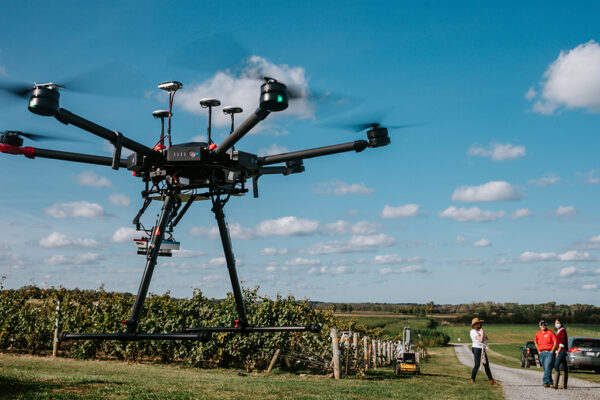
Explore fields like computer science, psychology, sociology, communication, engineering, and data science—and then connect the dots back to your management research.
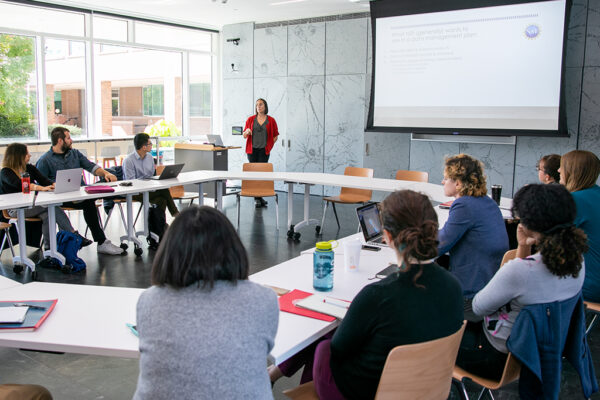
Interact with peers and professors from other disciplines by participating in student organizations and special interest groups or by attending public lectures, workshops, and networking events.

Admissions Overview: How to Apply to the Management PhD Program
The ideal candidate for the Johnson School’s doctorate degree in management will have a strong record of academic excellence, a solid understanding of the research process, and an entrepreneurial approach to problem-solving. An MBA or master’s degree is not a requirement for admission.
Our admissions page offers more details about program prerequisites, selection criteria, requirements, deadline information, and a checklist of materials you need to submit with your application.
Connect With Cornell Admissions
The Johnson School admissions team is available to answer your questions about the program and the application process. Stop in or reach out by phone or email today.
253-D Sage Hall Johnson Graduate School of Management Cornell University Ithaca, NY 14853-6201
Phone: 607-255-5340 Email: Graduate Research Programs Office

The Cornell Campus: Where You Will Learn, Grow, and Thrive
Learn, grow, and thrive on one of the most beautiful college campuses in the United States. As a PhD student, you’ll spend a lot of time in Sage Hall, a Gothic-style building dating back to 1875. You’ll find more high-tech learning spaces just off campus at the Breazzano Family Center for Business Education. You’ll also have access to the innovative campus of Cornell Tech in New York City—particularly relevant to students focused on technology and information management.
Attending Cornell also means you’ll call Ithaca, NY, home for about five years. Our eclectic downtown is full of eateries, shops, activities, and all of the amenities you’d need for everyday life. When you’re not in class or studying, you can explore all that the Finger Lakes region has to offer.
PhD in Management FAQ: What You Need to Know
Before you apply to a research-focused graduate program, you’re likely to want to do some deep research of your own. For instance, how does a fully funded PhD in Management work? What’s the typical completion time?
We have a robust Frequently Asked Questions section to help you learn more about our program, the admissions process, and dissertation requirements. For our international applicants, you’ll also find specific details about earning your PhD in Management.
May I speak to someone about my interest in the program and visit?
You are welcome to reach out to any professor with whom you see a good research fit. Our website also has a wealth of information about the program.
Is an interview part of the process?
We offer interviews only to a few applicants after their first screening.
May I talk to a professor or advisor?
You are welcome to contact any professor with whom you see a research match. Faculty are more likely to respond to specific research queries.
I have questions; may I write to this program email address?
Yes. Our response time will vary. We are not able to answer detailed questions that are better assessed by faculty during the application process.
May I schedule a campus tour?
Admissions does not offer campus tours for PhD program applicants. However, you may arrange an appointment with a faculty member.
Fraud alert – beware of third-party post-doc scams.
Cornell University recently has been made aware of fraudulent activity targeting overseas students and researchers, including at least one third party website falsely stating that it is offering a postdoctoral or visiting scholar program in association with Cornell. These scams, which may seek to obtain money and/or personal details from interested applicants, are fraudulent.
Cornell wishes to warn the public about these fraudulent activities being perpetrated purportedly in the name of Cornell, and/or its officials. Please be advised that:
- Cornell does not, nor has it, worked in collaboration with third-party companies or organizations to offer postdoctoral or research certificate programs.
- Third parties do not collect tuition or fees on behalf of Cornell.
- Cornell does not work with or endorse such organizations including, but not limited to, Shanghai Lufei Education Technology Co., Ltd. (Chinese name: 上海璐斐教育科技有限公司) and Shenzhen Guoyan Era Education Technology Co., Ltd. (Chinese name: 深圳市国研时代教育科技有限公司).
Cornell’s postdoctoral positions are listed on the Academic Career Opportunities website and postdoctoral fellowship programs are available for viewing. If you suspect a third party of falsely advertising a Cornell program, please notify [email protected]. Victims of such scams may also report them to their local law enforcement authorities for appropriate action.
Start the Application Process Today
Ready to apply to our highly selective, fully funded PhD in Management? We look forward to learning more about you and your research goals. Start the application process today at the Cornell Graduate Admissions website. [You’ll first need to register for an account or log in to an existing one.]
Programs by Topic
- Corporate Governance
- Design Thinking
- Entrepreneurship
- General Management
- Negotiation
- Organizational Leadership
- Personal Leadership
- Social Impact
- Technology & Operations
Featured Programs
- Stanford Executive Program
- Stanford LEAD
- See All Programs by Date
- See All Online Programs
- Custom Programs
- Program Formats
- Developing a Program
- Catalyst Programs
- Diversity & Inclusion for Strategic Impact
- Strategic Transformation in Times of Disruption
- Program Experience
- Contact Client Services
- Academic Experience
Life & Learning
- In-Person Programs
- On-Demand Online Courses
- Live Online Programs
Community
- Faculty Spotlights
- Participant Spotlights
- Alumni Voices
- Eligibility
- Payment & Cancellation
- Application Process
- International Participants
- Apply Online

Stanford LEAD Online Business Program
Choose a session:, 19 mar 2025 – 18 mar 2026, business model analysis and design.
Just as you wouldn’t build a house without first creating a blueprint, effective commercial innovation requires a blueprint of the business that will be supported or generated by your innovation.
Course Introduction
That blueprint is the business model, which comprises three elements: the value creation model, which specifies how the innovation will create and deliver differentiated value to its customers, and who these customers will be; the profit model, which specifies the sources of revenue, the cost structure, and the drivers of profitability; and the logic of the business, which ties together the value creation and profit models and explains how the business will meet its growth and profitability objectives.
Iterating on business model development helps innovators follow a structured process for planning and building new businesses on a standalone basis or within established enterprises. In this course, we’ll discuss the process of structuring business models, address the core elements of a business model, and practice the design of innovative business models for new and established companies from multiple industries. We’ll do that by analyzing case studies, studying innovative business models, discussing the topic with entrepreneurs and venture capitalists, and building our own business model.
Some industries that we cover include:
- Online services
- Industrial B2B
- Hospitality
- Biotechnology (Moderna)
- Information technology
- Mobile devices and apps
When we cover these industries, we focus on general lessons that apply to virtually all industries.
- Purpose of a business model
- Elements of business model design
- Adoption and business model development
- Business model archetypes and the associated logic
- Sharing economy business models
- Business model transformation
- Profit models and unit economics
- Platform-based business models and ecosystems
Course Faculty
Haim mendelson.
Program dates, fees, and faculty subject to change. Consistent with its non-discrimination policy, Stanford’s programs are open to participants regardless of race, color, national or ethnic origin, sex, age, disability, religion, sexual orientation, gender identity or expression, veteran status, marital status or any other characteristic protected by applicable law.
- Research & Insights
- Search Fund Primer
- Teaching & Curriculum
- Affiliated Faculty
- Faculty Advisors
- Louis W. Foster Resource Center
- Defining Social Innovation
- Impact Compass
- Global Health Innovation Insights
- Faculty Affiliates
- Student Awards & Certificates
- Changemakers
- Dean Jonathan Levin
- Dean Garth Saloner
- Dean Robert Joss
- Dean Michael Spence
- Dean Robert Jaedicke
- Dean Rene McPherson
- Dean Arjay Miller
- Dean Ernest Arbuckle
- Dean Jacob Hugh Jackson
- Dean Willard Hotchkiss
- Faculty in Memoriam
- Stanford GSB Firsts
- Annual Alumni Dinner
- Class of 2024 Candidates
- Certificate & Award Recipients
- Dean’s Remarks
- Keynote Address
- Teaching Approach
- Analysis and Measurement of Impact
- The Corporate Entrepreneur: Startup in a Grown-Up Enterprise
- Data-Driven Impact
- Designing Experiments for Impact
- Digital Marketing
- The Founder’s Right Hand
- Marketing for Measurable Change
- Product Management
- Public Policy Lab: Financial Challenges Facing US Cities
- Public Policy Lab: Homelessness in California
- Lab Features
- Curricular Integration
- View From The Top
- Formation of New Ventures
- Managing Growing Enterprises
- Startup Garage
- Explore Beyond the Classroom
- Stanford Venture Studio
- Summer Program
- Workshops & Events
- The Five Lenses of Entrepreneurship
- Leadership Labs
- Executive Challenge
- Arbuckle Leadership Fellows Program
- Selection Process
- Training Schedule
- Time Commitment
- Learning Expectations
- Post-Training Opportunities
- Who Should Apply
- Introductory T-Groups
- Leadership for Society Program
- Certificate
- 2024 Awardees
- 2023 Awardees
- 2022 Awardees
- 2021 Awardees
- 2020 Awardees
- 2019 Awardees
- 2018 Awardees
- Social Management Immersion Fund
- Stanford Impact Founder Fellowships
- Stanford Impact Leader Prizes
- Social Entrepreneurship
- Stanford GSB Impact Fund
- Economic Development
- Energy & Environment
- Communication
- Collaborative Environment
- Activities & Organizations
- Student Services
- Stanford GSB Residences
- International Students
- Environmental Leadership
- Stanford GSB Artwork
- A Closer Look
- California & the Bay Area
- Voices of Stanford GSB
- Business & Beneficial Technology
- Business & Sustainability
- Business & Free Markets
- Business, Government, and Society Forum
- Get Involved
- Why Stanford MBA
- Second Year
- Global Experiences
- JD/MBA Joint Degree
- MA Education/MBA Joint Degree
- MD/MBA Dual Degree
- MPP/MBA Joint Degree
- MS Computer Science/MBA Joint Degree
- MS Electrical Engineering/MBA Joint Degree
- MS Environment and Resources (E-IPER)/MBA Joint Degree
- Academic Calendar
- Clubs & Activities
- Conferences
- LGBTQ+ Students
- Military Veterans
- Minorities & People of Color
- Partners & Families
- Students with Disabilities
- Student Support
- Residential Life
- Student Voices
- MBA Alumni Voices
- A Week in the Life
- Career Support
- Employment Outcomes
- Cost of Attendance
- Knight-Hennessy Scholars Program
- Yellow Ribbon Program
- BOLD Fellows Fund
- Loan Forgiveness
- Contact the Financial Aid Office
- Evaluation Criteria
- GMAT & GRE
- English Language Proficiency
- Personal Information, Activities & Awards
- Professional Experience
- Letters of Recommendation
- Optional Short Answer Questions
- Application Fee
- Reapplication
- Deferred Enrollment
- Joint & Dual Degrees
- Entering Class Profile
- Event Schedule
- Ambassadors
- New & Noteworthy
- Ask a Question
- See Why Stanford MSx
- Is MSx Right for You?
- MSx Stories
- Leadership Development
- How You Will Learn
- Admission Events
- Personal Information
- GMAT, GRE & EA
- English Proficiency Tests
- Career Change
- Career Advancement
- Career Support and Resources
- Daycare, Schools & Camps
- U.S. Citizens and Permanent Residents
- Requirements
- Requirements: Behavioral
- Requirements: Quantitative
- Requirements: Macro
- Requirements: Micro
- Annual Evaluations
- Field Examination
- Research Activities
- Research Papers
- Dissertation
- Oral Examination
- Current Students
- Research Resources
- Education & CV
- International Applicants
- Statement of Purpose
- Reapplicants
- Application Fee Waiver
- Deadline & Decisions
- Financial Aid
- Job Market Candidates
- Academic Placements
- Stay in Touch
- Faculty Mentors
- Current Fellows
- Standard Track
- Fellowship & Benefits
- Group Enrollment
- Diversity & Inclusion
- Strategic Transformation
- Campus Experience
- Live Online Experience
- Silicon Valley & Bay Area
- Digital Credentials
- Stanford Ignite
- Frequently Asked Questions
- Operations, Information & Technology
- Organizational Behavior
- Political Economy
- Awards & Honors
- Classical Liberalism
- The Eddie Lunch
- Accounting Summer Camp
- California Econometrics Conference
- California Quantitative Marketing PhD Conference
- California School Conference
- China India Insights Conference
- Homo economicus, Evolving
- Political Economics (2023–24)
- Scaling Geologic Storage of CO2 (2023–24)
- A Resilient Pacific: Building Connections, Envisioning Solutions
- Adaptation and Innovation
- Changing Climate
- Civil Society
- Climate Impact Summit
- Climate Science
- Corporate Carbon Disclosures
- Earth’s Seafloor
- Environmental Justice
- Operations and Information Technology
- Organizations
- Sustainability Reporting and Control
- Taking the Pulse of the Planet
- Urban Infrastructure
- Watershed Restoration
- Junior Faculty Workshop on Financial Regulation and Banking
- Ken Singleton Celebration
- Marketing Camp
- Quantitative Marketing PhD Alumni Conference
- Presentations
- Theory and Inference in Accounting Research
- Publications
- Working Papers
- Case Studies
- Past Scholars
- Cities, Housing & Society Lab
- Stanford Closer Look Series
- Quick Guides
- Core Concepts
- Journal Articles
- Glossary of Terms
- Executive Education
- Faculty & Staff
- Subscribe to Corporate Governance Emails
- Corporations and Society Initiative
- Researchers & Students
- Research Approach
- Charitable Giving
- Financial Health
- Government Services
- Workers & Careers
- Short Course
- Adaptive & Iterative Experimentation
- Incentive Design
- Social Sciences & Behavioral Nudges
- Bandit Experiment Application
- Conferences & Events
- Reading Materials
- Energy Entrepreneurship
- Faculty & Affiliates
- SOLE Report
- Responsible Supply Chains
- Current Study Usage
- Pre-Registration Information
- Participate in a Study
- Data, Analytics & Research Computing
- Founding Donors
- Program Contacts
- Location Information
- Participant Profile
- Network Membership
- Program Impact
- Collaborators
- Entrepreneur Profiles
- Company Spotlights
- Seed Transformation Network
- Responsibilities
- Current Coaches
- How to Apply
- Meet the Consultants
- Meet the Interns
- Intern Profiles
- Collaborate
- Research Library
- News & Insights
- Databases & Datasets
- Research Guides
- Consultations
- Research Workshops
- Career Research
- Research Data Services
- Course Reserves
- Course Research Guides
- Material Loan Periods
- Fines & Other Charges
- Document Delivery
- Interlibrary Loan
- Equipment Checkout
- Print & Scan
- MBA & MSx Students
- PhD Students
- Other Stanford Students
- Faculty Assistants
- Research Assistants
- Stanford GSB Alumni
- Telling Our Story
- Staff Directory
- Site Registration
- Alumni Directory
- Alumni Email
- Privacy Settings & My Profile
- Digital Communities & Tools
- Success Stories
- The Story of Circles
- Support Women’s Circles
- Stanford Women on Boards Initiative
- Alumnae Spotlights
- Insights & Research
- Regional Chapters
- Identity Chapters
- Industry & Professional
- Entrepreneurial Commitment Group
- Recent Alumni
- Class Notes
- Half-Century Club
- Fall Reunions
- Spring Reunions
- MBA 25th Reunion
- Half-Century Club Reunion
- Faculty Lectures
- Ernest C. Arbuckle Award
- Alison Elliott Exceptional Achievement Award
- ENCORE Award
- Excellence in Leadership Award
- John W. Gardner Volunteer Leadership Award
- Robert K. Jaedicke Faculty Award
- Jack McDonald Military Service Appreciation Award
- Jerry I. Porras Latino Leadership Award
- Tapestry Award
- Student & Alumni Events
- Executive Recruiters
- Interviewing
- Land the Perfect Job with LinkedIn
- Negotiating
- Elevator Pitch
- Email Best Practices
- Resumes & Cover Letters
- Self-Assessment
- Whitney Birdwell Ball
- Margaret Brooks
- Laura Bunch
- Bryn Panee Burkhart
- Margaret Chan
- Ricki Frankel
- Peter Gandolfo
- Cindy W. Greig
- Natalie Guillen
- Carly Janson
- Sloan Klein
- Sherri Appel Lassila
- Stuart Meyer
- Tanisha Parrish
- Virginia Roberson
- Philippe Taieb
- Michael Takagawa
- Terra Winston
- Johanna Wise
- Debbie Wolter
- Rebecca Zucker
- Complimentary Coaching
- Changing Careers
- Work-Life Integration
- Career Breaks
- Flexible Work
- Encore Careers
- Join a Board
- Career Video Library
- D&B Hoovers
- Data Axle (ReferenceUSA)
- EBSCO Business Source
- Global Newsstream
- Market Share Reporter
- ProQuest One Business
- RKMA Market Research Handbook Series
- Student Clubs
- Entrepreneurial Students
- Stanford GSB Trust
- Alumni Community
- How to Volunteer
- Springboard Sessions
- Consulting Projects
- 2020 – 2029
- 2010 – 2019
- 2000 – 2009
- 1990 – 1999
- 1980 – 1989
- 1970 – 1979
- 1960 – 1969
- 1950 – 1959
- 1940 – 1949
- Service Areas
- ACT History
- ACT Awards Celebration
- ACT Governance Structure
- Building Leadership for ACT
- Individual Leadership Positions
- Leadership Role Overview
- Purpose of the ACT Management Board
- Contact ACT
- Business & Nonprofit Communities
- Reunion Volunteers
- Ways to Give
- Fiscal Year Report
- Business School Fund Leadership Council
- Planned Giving Options
- Planned Giving Benefits
- Planned Gifts and Reunions
- Legacy Partners
- Giving News & Stories
- Giving Deadlines
- Development Staff
- Submit Class Notes
- Class Secretaries
- Board of Directors
- Career & Success
- Culture & Society
- Finance & Investing
- Health Care
- Leadership & Management
- Operations & Logistics
- Opinion & Analysis
- Opportunity & Access
- Sustainability
- Class Takeaways
- All Else Equal: Making Better Decisions
- If/Then: Business, Leadership, Society
- Grit & Growth
- Think Fast, Talk Smart
- Spring 2022
- Spring 2021
- Autumn 2020
- Summer 2020
- Winter 2020
- In the Media
- For Journalists
- DCI Fellows
- Other Auditors
- Academic Calendar & Deadlines
- Course Materials
- Entrepreneurial Resources
- Campus Drive Grove
- Campus Drive Lawn
- CEMEX Auditorium
- King Community Court
- Seawell Family Boardroom
- Stanford GSB Bowl
- Stanford Investors Common
- Town Square
- Vidalakis Courtyard
- Vidalakis Dining Hall
- Catering Services
- Policies & Guidelines
- Reservations
- Contact Faculty Recruiting
- Lecturer Positions
- Postdoctoral Positions
- Accommodations
- CMC-Managed Interviews
- Recruiter-Managed Interviews
- Virtual Interviews
- Campus & Virtual
- Search for Candidates
- Think Globally
- Recruiting Calendar
- Recruiting Policies
- Full-Time Employment
- Summer Employment
- Entrepreneurial Summer Program
- Global Management Immersion Experience
- Social-Purpose Summer Internships
- Process Overview
- Project Types
- Client Eligibility Criteria
- Client Screening
- ACT Leadership
- Social Innovation & Nonprofit Management Resources
- Develop Your Organization’s Talent
- Centers & Initiatives
- Student Fellowships

Cambridge Business Model Innovation Research Group (CBiG)
- Business Model Innovation, Digital Technologies and Productivity
- Further Research Projects
- Publications
- Working Papers & Reports
- Research Programme Meetings
Further research projects
Business model innovation for digital technologies: unpacking the productivity paradox.
Productivity growth has been slowing down in the last decade in major economies as well as in emerging markets despite the prevalence of digital technologies. This phenomenon is widely known as the productivity paradox. The productivity growth slowdown is particularly acute in the UK compared to other major economies. One of the main reasons for this productivity slowdown could be due to the limited redesign of business models following the adoption of new digital technologies by firms.
Business Model Innovation Research Group is investigating the implications of business model innovation on productivity resulting from the adoption of digital technologies. The research includes empirical analysis of various industry value chains, developing frameworks to measure business model effectiveness as part of the senior management decision support system and productivity reporting at a national level.
Business Model Innovation in Digital Fabrication
Business Model Innovation and Entrepreneurship
This research examines how the degree of technology dependence of business models of start-up firms influences the survival of these firms. In addition, the study examines how the innovative nature of incumbent firms influences entrepreneurial spawning.
Business Model Innovation and Business Ecosystems
This research stream studies firms transforming from a relatively closed innovation to a more collaborative innovation business model with an ecosystem of firms. One study examines what type of governance system would be necessary for the firm to be more responsive in identifying and responding to intelligence by working collectively with the ecosystem partners. The second study examines the difference between manufacturing and service firms in their approach to searching for new ideas in the market place. A third study examines the transformation challenges of firms moving to a service-based business model with an ecosystem of firms – project within the Cambridge Service Alliance.
Business Model Innovation and Economic Development
One of the major themes under this research stream is examining the role of business models and technology for economic development, see Business Model Innovation in India feature. This is particularly of concern for countries that have experienced some economic development and looking to accelerate growth to catch up with more advanced economies. The research group is part of the Malaysia-UK Innovation Alliance (which was set-up by the Innovation Agency of Malaysia (AIM) under the Prime Minister’s Office in Malaysia) and seeks to support the exchange of knowledge and intellectual property between Malaysia and the UK through the application of science, technology and innovation. A number of scholarships for students pursuing PhD studies to examine these issues have already been set-up with further forthcoming collaborations. View details here .
The group ran two workshops on business model innovation:
- Business Model Innovation Workshop with Industry Leaders Workshop in July 2014
- Business Model Innovation Workshop with UK Academics in December 2014
Quick Links
- Report - Business model innovation
- Report - The imperative for business model innovation
- Article - The innovation game

- Institute for Manufacturing
- 17 Charles Babbage Road
- Cambridge CB3 0FS
- +44 (0)1223 766141
- [email protected]
- Site Map | Freedom of Info | Privacy
- Stay in touch:

- Artificial Intelligence
- Asset Management
- Business Model Innovation
- Computer Aided Manufacturing
- Decision-Making for Emerging Technologies
- Design Management
- Digital Manufacturing
- Distributed Information & Automation Laboratory
- Fluids in Advanced Manufacturing
- Industrial Photonics
- Industrial Resilience
- Industrial Sustainability
- Inkjet Research
- Innovation and Intellectual Property
- International Manufacturing
- Manufacturing Industry Education Research
- NanoManufacturing
- Science, Technology & Innovation Policy
- Strategy and Performance
- Technology Enterprise
- Technology Management
- Service Alliance
- University Commercialisation and Innovation Policy Evidence Unit
- About IfM ECS
- Consultancy
- Professional development
- For business
- For government
- For universities
- Open courses
Department of Engineering
Accessibility | © University of Cambridge 2016

IMAGES
VIDEO
COMMENTS
PhD Studentship (3 years): Transformative Pathways: Servitization, Digitalization, and Business Model Innovation for a Sustainable Future Aston University College of Business and Social Sciences Applications are invited for a three-year PhD studentship, supported by the College of Business and Social Sciences to be undertaken within the ...
Corporate Social Responsibility research explores business impact of delivering economic, social, and environmental benefits to stakeholders. 2. Business and Government researchers study the economic, political, social, and legal environment in which businesses operate. Drawing from perspectives of economic theory, political science, and ...
The PhD in Business Economics provides students the opportunity to study in both Harvard's world-class Economics Department and Harvard Business School. Throughout the program, coursework includes exploration of microeconomic theory, macroeconomic theory, probability and statistics, and econometrics. ...
PhD Program PhD Program Shaping the Future of Business Scholarship. In an international economy driven by accelerating change, the business world needs cutting-edge scholarship that probes the complexity of the marketplace and gives practitioners, policymakers and thinkers evidence-based tools and strategies to transform our models for managing, leading, innovating and succeeding.
Against this backdrop, the proposed PhD project seeks to chart a new course for ESG-driven business model innovation. It aims to dismantle the traditional view of ESG as a mere compliance issue and reposition it as a cornerstone of strategic business model design that harmonizes profitability with sustainability. Possible Research Objectives:
Deepen your knowledge of optimization and stochastic models and pursue research in areas of focus like financial engineering or machine learning. Develop a comprehensive set of analytical tools to solve complex operational problems in business. In the PhD in Operations Research program at Columbia Engineering, you'll gain familiarity with the ...
Students in the program are expected to master graduate-level microeconomic theory and econometrics. In addition, they are expected to devote substantial time to mastering one additional complementary discipline, such as psychology, sociology, or political science, and developing expertise in research methodologies suited to their particular interests, such as qualitative analysis, designing ...
Guarav Kankanhalli, PhD '20, assistant professor, Joseph M. Katz Graduate School of Business, University of Pittsburgh; Eunjee Kim, PhD '21, assistant professor, Mays Business School, Texas A&M University ... whether it's looking at emerging tools and practices or exploring new business models. He's frequently interviewed in an array of ...
Iterating on business model development helps innovators follow a structured process for planning and building new businesses on a standalone basis or within established enterprises. In this course, we'll discuss the process of structuring business models, address the core elements of a business model, and practice the design of innovative ...
A number of scholarships for students pursuing PhD studies to examine these issues have already been set-up with further forthcoming collaborations. View details here. The group ran two workshops on business model innovation: Business Model Innovation Workshop with Industry Leaders Workshop in July 2014